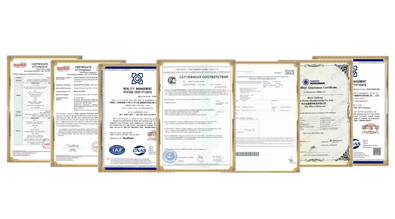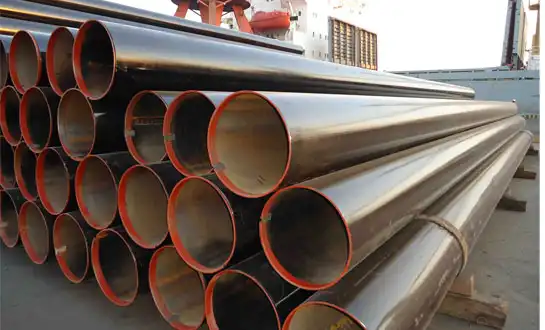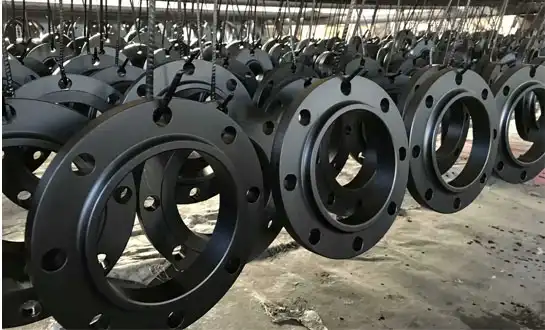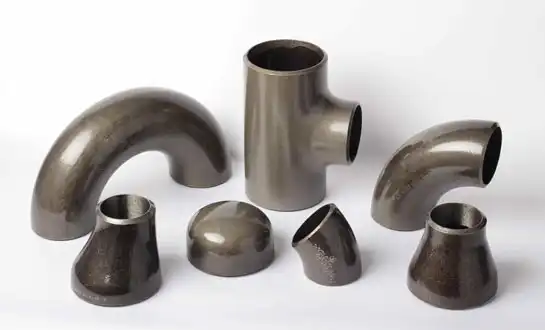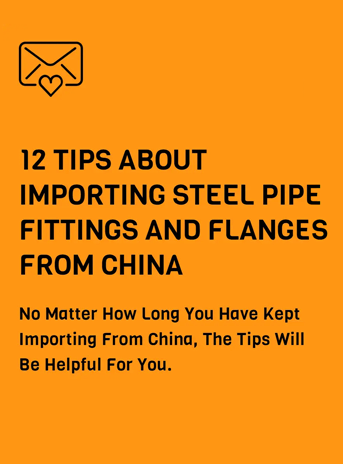Which manufacturers are leading in global industrial pipe fittings supply?
A few big companies control the global market for industrial pipe fittings. A lot of people know these businesses for making high-quality, unique goods. There are different ways to rank companies, but these are the ones that always come out on top:
Victaulic Company
Victaulic makes parts for a lot of different businesses and is known for their curved motorized pipe joining options.
Anvil International
Anvil is a big player in connecting pipes, and they offer a wide range of pipe supports and fittings.
Aliaxis Group
This world leader makes high-tech pipe systems for use in construction, infrastructure, industry, and farming.
Mueller Industries
Mueller makes a lot of different materials for plumbing and HVAC systems. They are best known for their copper fittings.
Georg Fischer Piping Systems
Innovative ways to safely move water, chemicals, and gas through pipe fittings are available from GF Piping Systems.
Nibco Inc.
A top company that makes valves, fittings, and flow control items for building in business, industry, and schools.
Hebei Rayoung Pipeline Technology Co., Ltd.
It is well known that RAYOUNG carbon steel pipe fittings are of high quality and can be relied on in industrial settings.
Charlotte Pipe and Foundry Company
This company makes a lot of cast iron and plastic pipes and parts in North America.
Lesso Group Holdings Limited
Lesso is a big name in plastic pipe systems and has a lot of parts that can be used in different situations.
Plasson Ltd.
Well-known for their skill with plastic pipe fittings, especially for systems that distribute water and gas.
Through constant performance, new ideas, and a footprint around the world, these companies have made a name for themselves as trusted sources for high-quality pipe fittings. Their goods are used in many big industry projects around the world to solve problems with complicated pipe systems in many different areas.
Criteria for reliable pipe fittings manufacturers: certification, catalog range, service
Several important factors should be taken into account when choosing pipe parts makers for business projects to ensure quality and dependability. These things help project managers and buying specialists make smart choices that meet the needs of the project and the standards of the industry.
Certifications and Compliance
Reputable makers should have the right certificates to show that they care about quality and following industry rules. These are some very important licenses:
- ISO 9001:2015 says that methods for quality control must be used.
- The American Petroleum Institute (API) okays rules for the oil and gas business.
- ASME stands for the American Society of Mechanical Engineers. clearances for parts of pipes and pressure tanks
- It is written in the Pressure Equipment Directive (PED) that Europe must follow it.
- Records that are good for the earth, like ISO 14001
Comprehensive Product Catalog
A reputable company should have a lot of different pipe parts to meet the needs of different projects. This should be in the catalog:
- We work with carbon steel, stainless steel, alloy steel, copper, and PVC, among other materials. We also make tees, elbows, reducers, flanges, and couplings, among other types of fittings.
- range of sizes to fit pipes with different widths
- Pressure values that can be used in a number of industry settings
- Specific parts for specific project needs
Quality Control and Testing
Manufacturers should have strong systems in place for quality control, such as:
- Tracking of materials from raw materials to finished goods
- Tests that don't damage things (NDT)
- Chemical and mechanical tests can be done in-house.
- Following foreign rules for testing and making things
Technical Support and Customer Service
Manufacturers you can trust offer a wide range of pipe fittings and support services, such as:
- Documentation and specs for technical products
- Help with engineering for unique ideas
- Quick response from customer service to questions and problems
- Training and guidance on how to set up and take care of products
Production Capacity and Lead Times
Think about companies that:
- Plenty of production ability to meet project needs
- Ability to keep quality high across many big orders
- Fair wait times and a history of on-time deliveries
Global Presence and Distribution Network
Keep an eye out for companies that:
- Manufacturing plants around the world or strong partnerships
- Distribution networks that work well so deliveries happen on time
- Help from people in key markets
When project managers use these factors to evaluate makers, they can be sure they are working with dependable companies that can provide high-quality pipe parts that meet project requirements and industry standards. This method lowers the risks that come with using substandard parts and helps industry projects succeed generally.
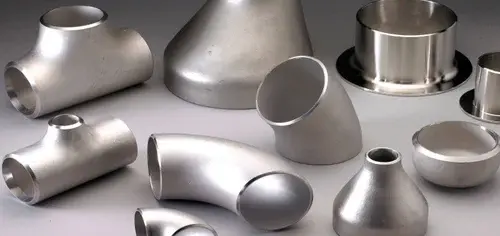
How to shortlist pipe fitting manufacturers for large-scale industrial projects?
Once you find a pipe parts maker for a big business project, you should follow a set of steps to make sure they can do the job. Follow these steps to make a good choice as a project manager or hiring team:
Define Project Requirements
Start by making a list of the exact needs of the project:
- What kinds and sizes of pipe parts are needed
- Details about the materials (like carbon steel, stainless steel, metals, etc.)
- Ratings for warmth and pressure
- How much you need and when you need it by
- Any special needs or changes that need to be made
Research Potential Manufacturers
Spread your net wide to find possible suppliers:
- Use blogs and trade groups in your field
- Go to events and trade shows in your field.
- Talk to people at work and in the same field to get help.
- Do an internet search for companies that make the parts you need.
Evaluate Manufacturing Capabilities
Check to see if each maker can meet the goals of your project:
- Look through product brochures to see what they offer and how well they work with other things.
- Check how much can be made and how long wait times usually are.
- Check to see how much experience they have with projects or fields like yours.
- Think about their technical skills and history of coming up with new ideas.
Verify Certifications and Quality Standards
Make sure that everyone follows the business's rules:
- Get the right ISO marks, like ISO 9001:2015.
- Look at the company's own qualifications, like those from API, ASME, and other groups.
- Take a look at their tests and quality control methods.
- Check to see how committed they are to environmental and social standards
Assess Financial Stability and Reputation
Think about how reliable possible sellers of pipe fittings will be in the long run:
- Find out how stable and healthy the company's finances are.
- Case studies and customer reviews are good places to start.
- Check the name and track record of the business.
- Check out their worldwide reach and marketplace.
Request for Information (RFI) and Quotations
Get a lot of information from possible suppliers:
- Ask certain makers to send you RFIs.
- You should ask for full quotes that fit your needs.
- Check to see how quick and careful they are.
Conduct Site Visits or Virtual Tours
If the project is important, you might want to get feedback from real people:
- Factory tours should be made if at all possible.
- You can ask for video walks if you can't go to the store in person.
- See how they make things and how they make sure the quality is good.
Review After-Sales Support and Services
Think about the possibility of a long-term partnership:
- Check out how well technology help and customer service work.
- Check the warranty's rules and how to file a claim.
- Check to see if they can provide ongoing help throughout the project's lifetime.
Create a Scoring Matrix
Make a plan for how to compare manufacturers:
- Make a method for giving grades based on your key factors.
- Based on what you know about each maker and how important each factor is to the project, give them an objective score.
Finalize the Shortlist
Based on what you think:
- Choose the best makers for your short list.
- Aim for a reasonable amount of possible providers, between 3 and 5.
- Make sure that all of the chosen makers can meet all of your project's needs.
By using this organized method, project managers can quickly come up with a short list of dependable pipe fittings companies that can meet the needs of their unique industrial project. This thorough evaluation method lowers the risks that come with choosing a provider and sets the stage for a successful project completion.
Conclusion
For big industrial projects to go well, it's important to choose the right pipe parts maker. Project managers can make sure they work with dependable providers who can meet their needs by looking at things like product quality, licenses, manufacturing capabilities, and help after the sale. RAYOUNG is one of the best companies in its field that makes carbon steel pipe fittings because it is dedicated to quality and new ideas.
People who need a trusted partner for their industrial plumbing needs can choose from a large selection of high-quality pipe fittings made of butt-weld steel, such as elbows, reducers, and flanges. The RAYOUNG company has ISO 9001:2015 approval and cares a lot about making sure their customers are happy. They make sure that the pipe options they give you for your project are safe, long-lasting, and up to code. RAYOUNG has a lot of different goods and a lot of knowledge, so it can meet your needs whether you're working on water systems, gas lines, or hard industry jobs.
FAQ
1. What are the most common materials used for industrial pipe fittings?
Stainless steel, alloy steel, copper, and different kinds of plastics, like HDPE and PVC, are often used to make industrial pipe fittings. The choice is based on the temperature, the setting, the type of liquids being moved, and the pressure that needs to be used.
2. How often should industrial pipe fittings be inspected and replaced?
It depends on the material, location, and use of the pipe part how often it needs to be reviewed and changed. A full review should be done about once a year. When there is a lot of worry or sour air, checks should be done more often. Many times, parts are changed when they get worn out or rust or as part of regular maintenance.
3. What certifications should I look for when choosing a pipe fittings manufacturer?
As an oil and gas worker, you should use API, ASME, or PED. In Europe, PED is good for pressure tools. To keep an eye on quality, ISO 9001:2015 is a good choice. Businesses that follow rules like ISO 14001, which are good for the earth, also show that they care.
Ensure Reliable Industrial Piping with Quality Fittings | RAYOUNG
Are you ready to move your business project forward? Get some good pipe parts. RAYOUNG has a wide selection of carbon steel pipe valves that are made to meet the strictest industry needs. Every elbow, reducer, and joint we make is made from the best butt-weld steel. Your pipes will be safe, last a long time, and work well because of this.
Bad fits shouldn't get in the way of the truth of your idea. Choose RAYOUNG for pipe fittings that are reliable, approved, and new. People on our team know how to help you choose the right sizes so that they fit well and last a long time.
This is the first thing that needs to be done to start making an industrial water system that works better and is safer. Contact RAYOUNG today at info@hb-steel.com to discuss your project requirements, request a quote, or learn more about our extensive product range. Let us be your trusted partner in building robust and efficient industrial infrastructure.
References
1. Smith, J. (2023). "Global Trends in Industrial Pipe Fittings Manufacturing". Industrial Engineering Quarterly, 45(2), 78-92.
2. Johnson, A. et al. (2022). "Quality Control Standards for High-Pressure Pipe Fittings in Industrial Applications". Journal of Materials Engineering and Performance, 31(8), 6123-6135.
3. Zhang, L. (2023). "Advancements in Carbon Steel Pipe Fittings for Extreme Environments". Materials Today: Proceedings, 58, 1256-1265.
4. Brown, R. (2022). "Sustainability Practices in Industrial Pipe Fitting Production". Green Manufacturing and Sustainability, 17(3), 302-315.
5. Davis, M. and Wilson, K. (2023). "Comparative Analysis of Certification Standards for Industrial Pipe Fittings Manufacturers". Quality Assurance in Engineering, 29(4), 521-534.
6. Anderson, P. (2022). "Selection Criteria for Pipe Fittings in Large-Scale Industrial Projects: A Comprehensive Guide". Project Management in Engineering, 40(1), 112-127.


